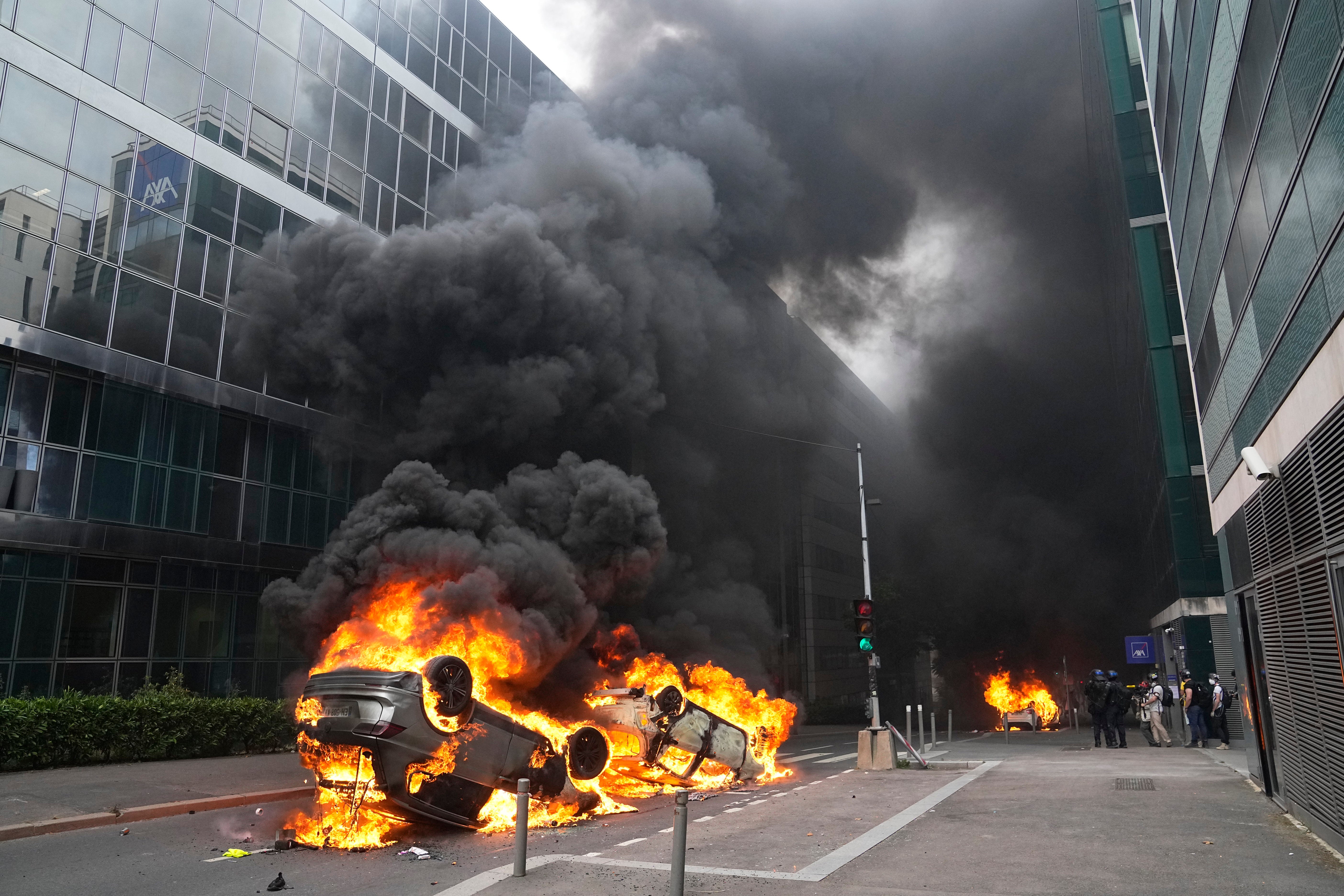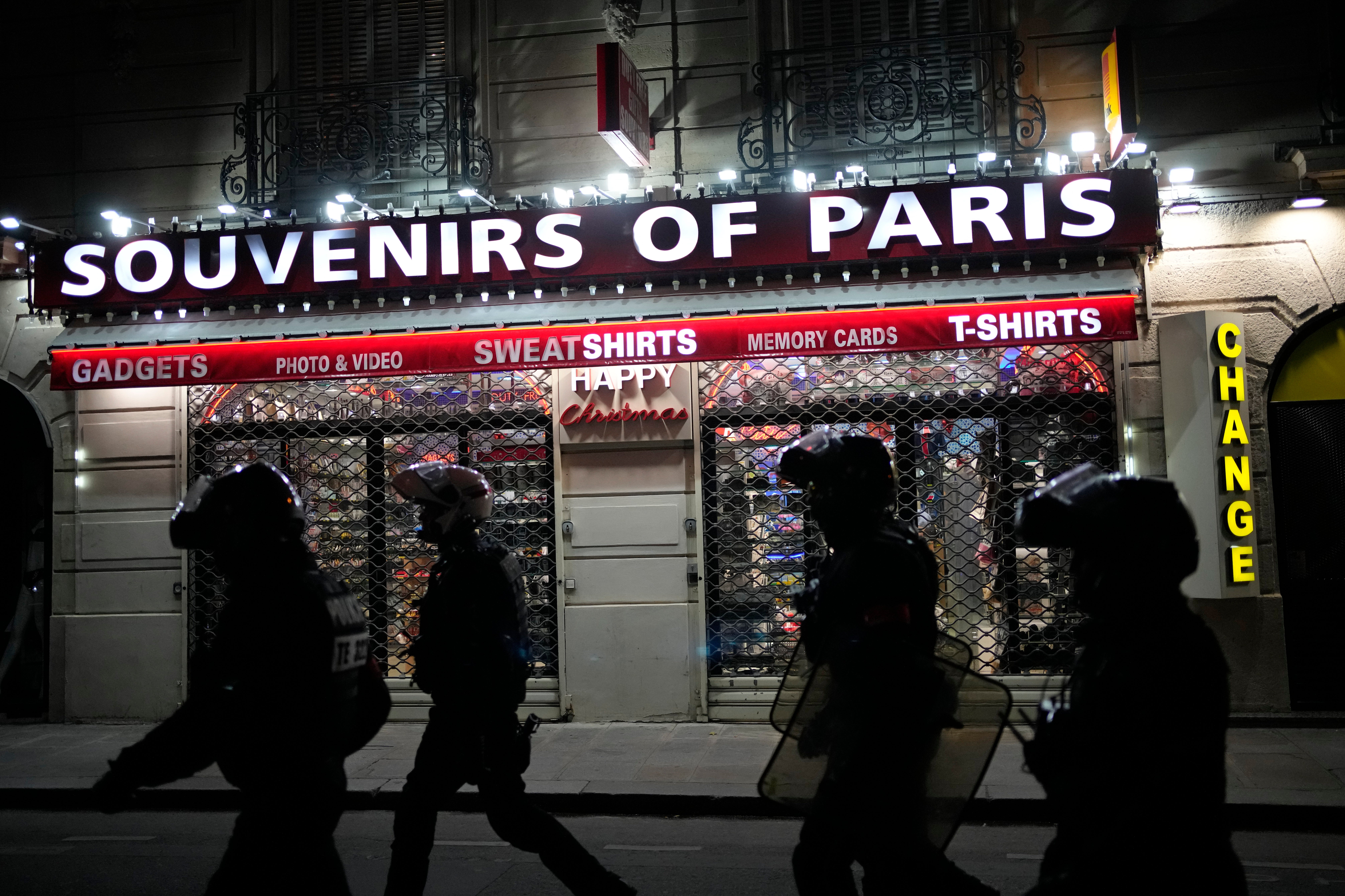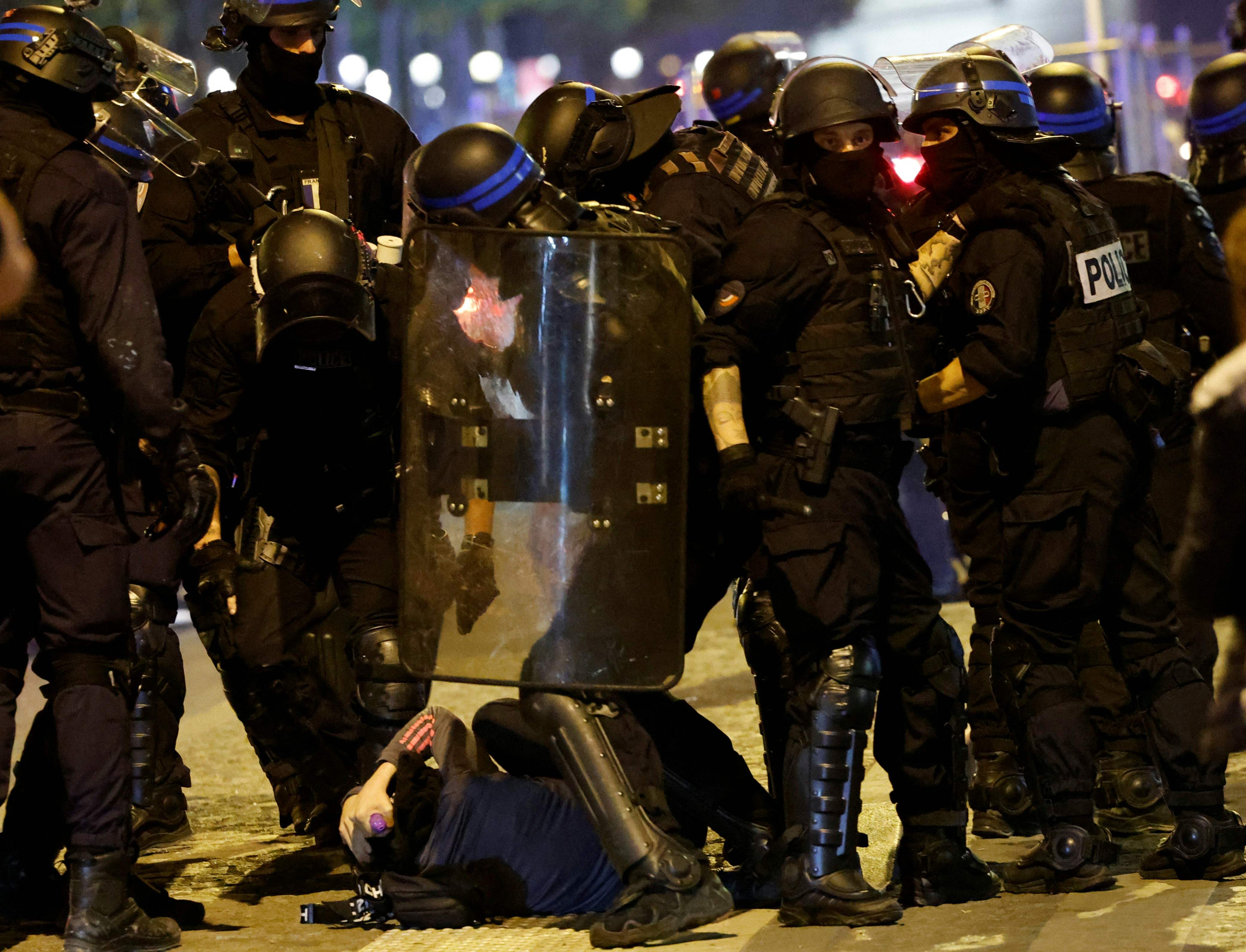Young people from our neighbourhood go to prison for so much less”, said Hatifa, the aunt of a French teenager whose shooting by a police officer at a traffic stop last week ignited nationwide protests and violent unrest.
The killing of Nahel, 17, which was caught on camera, has thrust his family, who are of Algerian and Moroccan origin, into the international spotlight.
Alarmed by the rising violence, his aunt wanted to make it clear they were calling for calm and an end to the ransacking and looting.
“I hope that Nahel’s death is going to trigger some kind of change,” she told me, in tears.
“Because we have a problem of racism and discrimination in France.”
In this part of Nanterre, the impoverished area of Paris where Nahel lived and was killed, her words were echoed by the local community.
“There is a two-tiered system of nationality if you are not white,” one man told me.
The murder of Nahel – and five days of unrest and violence which followed it – have not only presented one of the biggest challenges yet to Emmanuel Macron’s presidency but have also bitterly divided the nation.
It has once again exposed the fiery fault lines that have long simmered in French society: it comes after mass protests earlier this year against pension reforms, chaos in 2018-19 during the Gilets Jaunes rallies, and mass unrest in 2005.
This time it has thrown a particularly searing spotlight onto the French police.
On one side, the right has rallied around police and the officer charged with voluntary homicide who has been taken into pre-trial detention (an unprecedented action for France, it should be noted).
A Go Fund Me campaign was even set up by Jean Messiha, a former advisor to far-right politician Marine Le Pen, raising over a million euros for the policeman’s family.
One of the most powerful of France’s (already powerful) police unions, meanwhile, came out and even said it was “at war” with what it called “savage hordes of vermin”.

It certainly felt like that on the Champs-Élysées on Saturday night, when hundreds of armed police officers on motorcycles, in vans and on foot marched up and down the iconic thoroughfare in full Iron Man protective gear.
In fact, in total Macron deployed 45,000 police officers on the streets, where they made over 3,300 arrests and engaged in bitter battles with youth across the streets of Paris, Marseille, Lyon, Toulouse and Lille. Ransacking and looting followed.
Residents of an affluent street where early on Sunday a group of rioters ram-raided the home of a Paris suburb mayor, injuring his wife, told me the only solution was more security forces presence.
“This attack on our mayor shows that the government hasn’t given the police enough resources to do their job properly, not the opposite,” Michel, 30, a lawyer said.
On the other side, in the disaffected usually multicultural and working-class Banlieues – or suburbs – the calls were for an immediate reform of the system.
Emotions are neatly summed up in graffiti scrawled on the walls of the Nanterre metro stop: “A country of police impunity” and “the life of the young people in the suburbs matter.”

Abdelmadjid Benamara, Nahel’s family’s lawyer who is also from Nanterre, said there was a crushing feeling of hopelessness, disenfranchisement, and otherness within the outskirts of the cities where people feel shut out of the rest of the country.
“The problem with the suburbs is that everything has been built so you cannot get out of the suburbs,” Nahel’s lawyer concluded. “The schools, the social class, the unemployment, the lack of money – it is the same in every suburb you go to.”
And so Nahel’s murder was the straw that broke the camel’s back, anger and resentment had built.
He said Nahel’s was not the first incident but the third fatal police shooting at a traffic stop in France this year alone.
Of the 13 similar incidents last year, only five are being investigated.
He believes Nahel’s case has only got this much traction “because it was caught on camera”.
Olivier Cahn, a criminal law professor at Cergy University and researcher on the subject, said the heart of the issue is “the police governing itself in France.”
Law after law the police powers have increased
“It seems that in France the law is designed by the police themselves. We haven’t had an interior minister or home secretary or a parliament that is able to resist the demands of our police,” he continued.
“So law after law the police powers have increased.”
One law, in particular, has come under scrunity: Article L435-1 of the internal security code, which allows members of the security forces to use their weapons in a range of circumstances.
It was pushed through in 2017, a year after nationwide fury when several police officers were hospitalised, and one officer nearly burned to death in a firebombing attack on their vehicle in a suburb of the city of Viry-Chatillon.
While Cahn does not believe the wording itself necessarily gave the police a wider use of their firearms, it was interpreted that way. The year after the legislation was pushed through there was a five to six-fold increase in shootings by police.
That level has now come down to twice as many in comparison to before the legislation was enacted, but the problem persists. And so there have been calls this week to revoke the 2017 legislation.

The other factor is that there is no independent body to monitor the police – and so in instances like Nahel’s killing, the police will investigate itself.
“The first step is for the politicians, the government to restore its authority over the police forces and not follow them, by installing an independent body which governs them,” Cahn continued.
“The second is a need to return to community policing,” he added.
Police de proximité was established in 1998 but scrapped by Nicolas Sarkozy, while he was interior minister, in 2003 when he infamously said: “The role of policemen is not to play football and organise sporting events [with local communities] but to arrest criminals.”
The return of community policing was an idea shared among the older members of Nanterre community who said it might build bridges with the youth.
“I have lived here for 27 years and every year it gets more racist as things have changed in France,” said Lash Baghdad, 58, at Nahel’s funeral in Nanterre.
“Before there were neighbourhood police assigned to districts, who knew and were integrated into the community.”
Fixing the wider sense of discrimination however is a longer-haul battle, Baghdad said.
“In short, we need to feel like we belong.”









Join our commenting forum
Join thought-provoking conversations, follow other Independent readers and see their replies
Comments